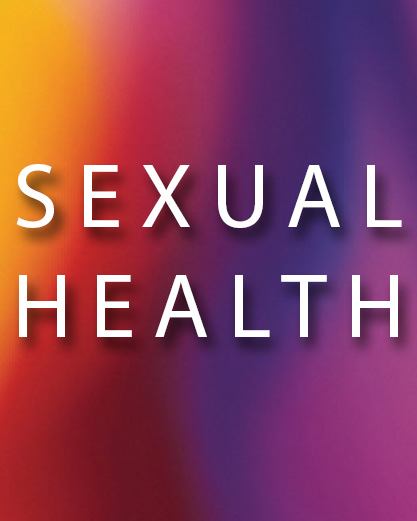
Sexual Health
Volume 21 Number 4 2024
Patient-delivered partner therapy (PDPT) involves providing a prescription or medication to a patient with chlamydia to pass to their sexual partner/s, but clinicians have expressed uncertainty about its permissibility and integration into practice. We surveyed clinician perspectives on updated health authority guidance for PDPT; finding they largely viewed it as supportive for PDPT decision-making and addressed some practical barriers. Low awareness of the updated guidance, and medico-legal concerns, for some, highlight scope for further dissemination and clarification of PDPT permissibility.
SH24105 Abstract | SH24105 Full Text | SH24105PDF (360 KB) Open Access Article
Health disparities remain a pressing issue globally, and Chatbot-Assisted Self Assessment (CASA) may enhance sexual health screening intentions among minoritised ethnic groups at risk of sexually transmitted infections (STIs). This innovative study reveals that CASA significantly boosts screening intentions, alleviates concerns about STIs, and fosters positive attitudes towards sexual health screening. Importantly, these findings underscore the potential of artificial intelligence to bridge gaps in health care and contribute to the broader goal of achieving health equity, particularly in underserved communities.
Pre-exposure prophylaxis therapy is highly effective in preventing HIV transmission; however, it is markedly underprescribed. Most commonly cited reasons for not prescribing pre-exposure prophylaxis are lack of physician comfort and knowledge. We developed a mobile application (app) that can be used during patient encounters to help clinicians identify appropriate patients and appropriately prescribe therapy. This app can be used in low-resource settings where HIV prevalence is highest.
Quality of life (QOL) is an important priority for people living with HIV (PLHIV). Using a patient-reported outcome measure (PozQol tool), we found that 58% of PLHIV reported a high or very high QOL, and socio-demographic factors such as Medicare-ineligibility and unemployment were associated with lower QOL scores. PozQol may assist services by enhancing understanding of QOL among PLHIV, guide local and national policy, health service provision, and promote empowerment of individuals to better understand their own QOL.
SH24040 Abstract | SH24040 Full Text | SH24040PDF (314 KB) Open Access Article
Men who have sex with men (MSM) suffer from health disparities at higher rates than men who have sex with women, which combined with the well understood association between obesity and poor health outcomes, calls attention to the unique health considerations of MSM with obesity. Mobile applications, such as Grindr, can be a valuable source of information on sociological predictors of health among MSM. We aimed to describe differences in the use of Grindr between MSM with and without obesity, and to use Grindr information to reveal trends that may serve as potential predictors of health. Our study highlights important trends that may serve as predictors of health in urban settings. These findings may be useful in informing providers and healthcare officials on when and how to provide outreach to this unique population.
Although designed to protect patients, the penicillin allergy label on medical records is associated with increased use of less effective, more toxic and more expensive antibiotics. This study found that patients with the label were significantly less likely to receive first-line treatment (ceftriaxone) for gonorrhoea infection, even if they were likely able to tolerate the antibiotic. This impact on antibiotic prescribing is detrimental to patient care, healthcare costs and antimicrobial stewardship, and may occur in other jurisdictions, populations and care settings.
SH24066 Abstract | SH24066 Full Text | SH24066PDF (210 KB) Open Access Article
Understanding women’s sexual well-being is critical to their overall quality of life. This study presents the Iranian adaptation of the Women’s Sexual Well-Being Scale and assesses its cross-cultural comparability. The Women’s Sexual Well-Being Scale can contribute to the development of targeted interventions, policy making and overall improvement in sexual health outcomes, particularly the Persian version for Iranian women.
Research has shown that there is a need for culturally responsive sexual and reproductive health care for international students from China. This study evaluated a team-based model of care that involved a practice nurse who spoke Mandarin, and had advanced skills in sexual health care, who provided preventive care advice followed by a consultation with a GP. The model was well received by both patients and GPs; however, the challenge is finding appropriate mechanisms of funding for this model of care in Australian general practice.
SH24021 Abstract | SH24021 Full Text | SH24021PDF (331 KB) | SH24021Supplementary Material (1.2 MB) Open Access Article
Sexually transmissible infections (STIs) rates among young Australians are increasing with young Aboriginal and Torres Strait Islander peoples disproportionately affected. Similar patterns of key risk behaviours, and greater engagement in sexual health care among young Aboriginal and/or Torres Strait Islander peoples, refute suggestions that higher STI rates are caused by this population engaging in more risky behaviour compared to their non-Indigenous peers. Social determinants of health and STI rates among sexual networks should be priorities for future research and intervention.
SH24041 Abstract | SH24041 Full Text | SH24041PDF (411 KB) | SH24041Supplementary Material (634 KB) Open Access Article
The success of HIV self-testing requires the user to accurately use the self-test, interpret the result, and be linked to relevant follow-up services. We summarised the systems and tools that have been used to support users through the self-testing process (‘support systems’), and found a diverse range of support systems, including pictorial instructions, in-person support, and virtual tools. We have developed a typology to categorise these support systems, which can be used as a framework for further research.
SH24037 Abstract | SH24037 Full Text | SH24037PDF (556 KB) | SH24037Supplementary Material (1.8 MB) Open Access Article
Gonorrhoea incidence is rising, and international studies have found that extragenital gonorrhoea positivity has increased at a faster rate than urogenital positivity among men who have sex with men. Data about extragenital gonorrhoea infection in New Zealand is lacking. Using data from a sexual health service, this study shows that extragenital infection is common, occurs without urogenital infection at high rates, and has increased at a faster rate than urogenital infection among males, highlighting the importance of extragenital sampling.
SH23182 Abstract | SH23182 Full Text | SH23182PDF (210 KB) Open Access Article
Practical tools to enhance the sustainability of sexual health programs are needed. Early planning, strong community engagement, consideration of financing, and multi-sectoral partnerships can all be used to increase sustainability. The President’s Emergency Plan for AIDS Relief demonstrates several of these lessons in the context of global sexual health programs.
SH24064 Abstract | SH24064 Full Text | SH24064PDF (211 KB) Open Access Article
Now available for the first time to young women and people with a cervix (aged 25–29 years), self-collection cervical screening is a safe, accurate and easy method to complete regular cervical screening without the use of a speculum. However, the best ways to communicate and promote self-collection to this age group has not been researched. This is important, because self-collection creates a positive screening experience, and will encourage young people to continue screening throughout their life, ultimately preventing cervical cancer.
SH24033 Abstract | SH24033 Full Text | SH24033PDF (178 KB) | SH24033Supplementary Material (1.2 MB) Open Access Article
In June 2023, a roundtable of experts and stakeholders was held in Singapore focusing on the introduction of long-acting formulations of HIV pre-exposure prophylaxis in Asia, particularly long-acting injectable cabotegravir. This paper describes issues discussed at the roundtable related to preparedness in research and implementation science, product licensing and accessibility, and capacity readiness for scale-up of long-acting injectable pre-exposure prophylaxis and future pre-exposure prophylaxis products.
SH23192 Abstract | SH23192 Full Text | SH23192PDF (167 KB) Open Access Article




